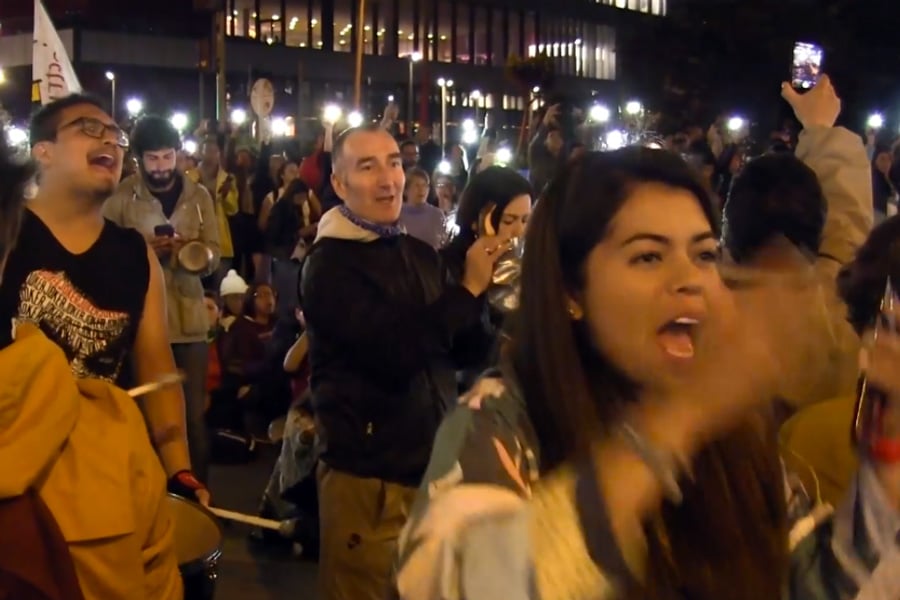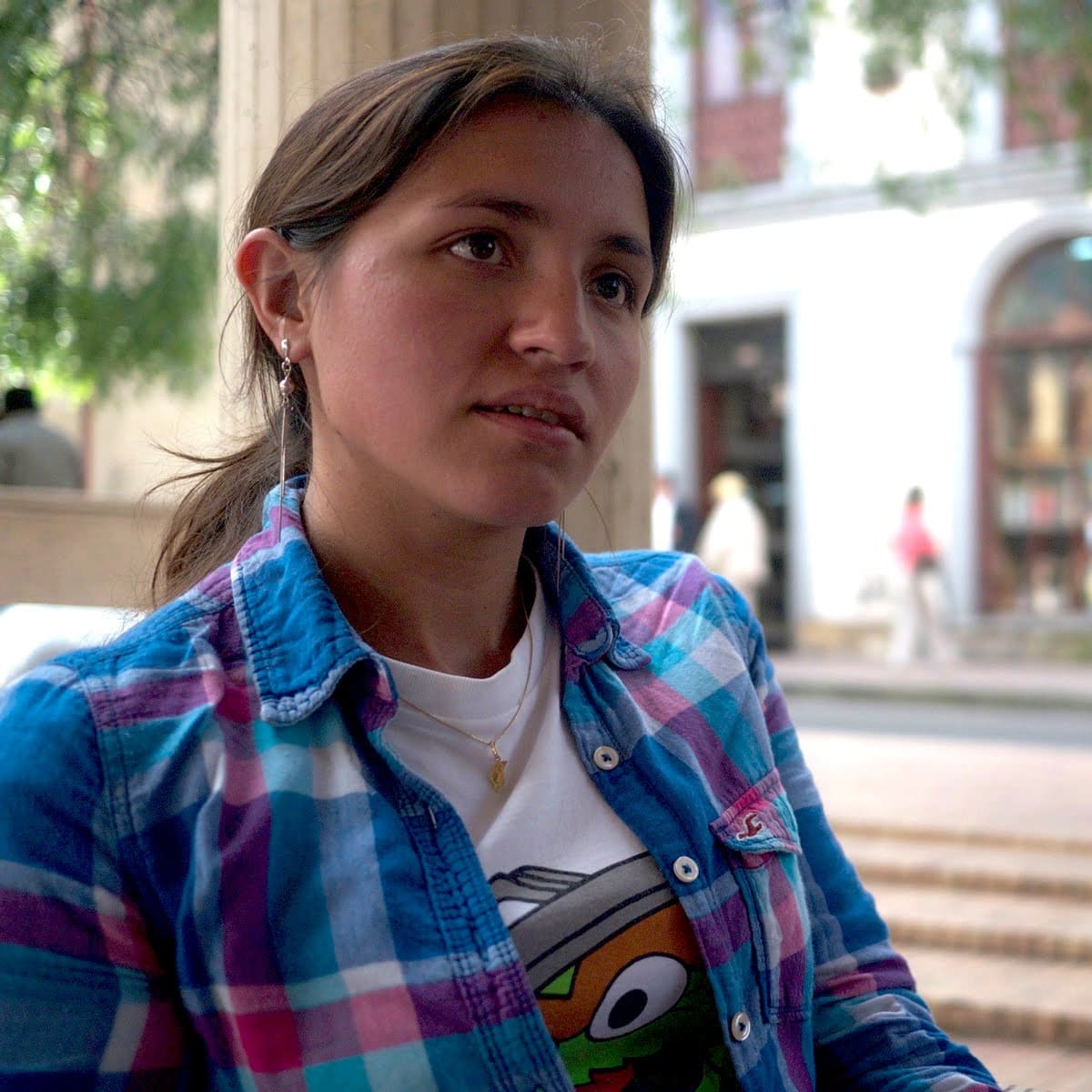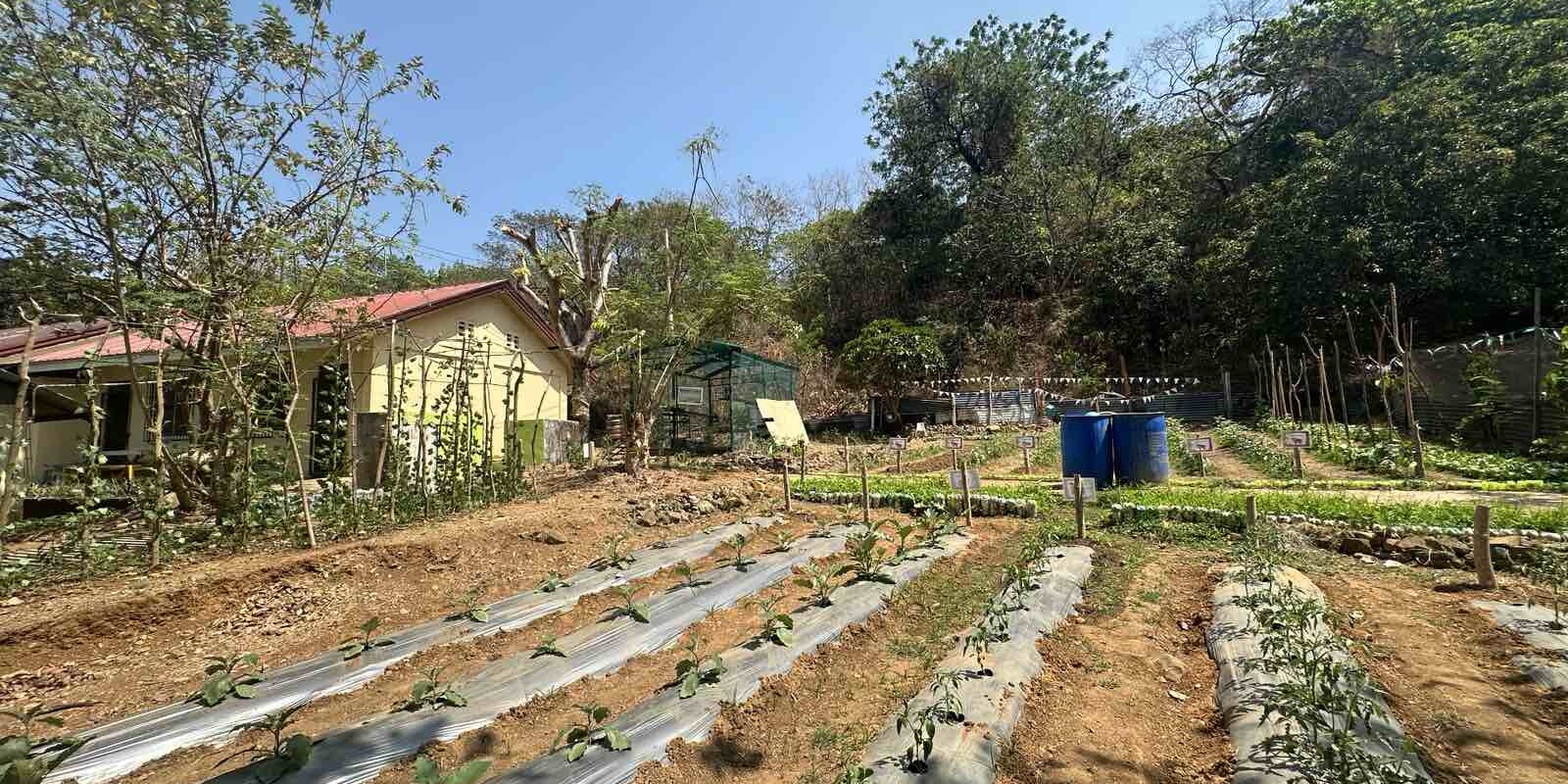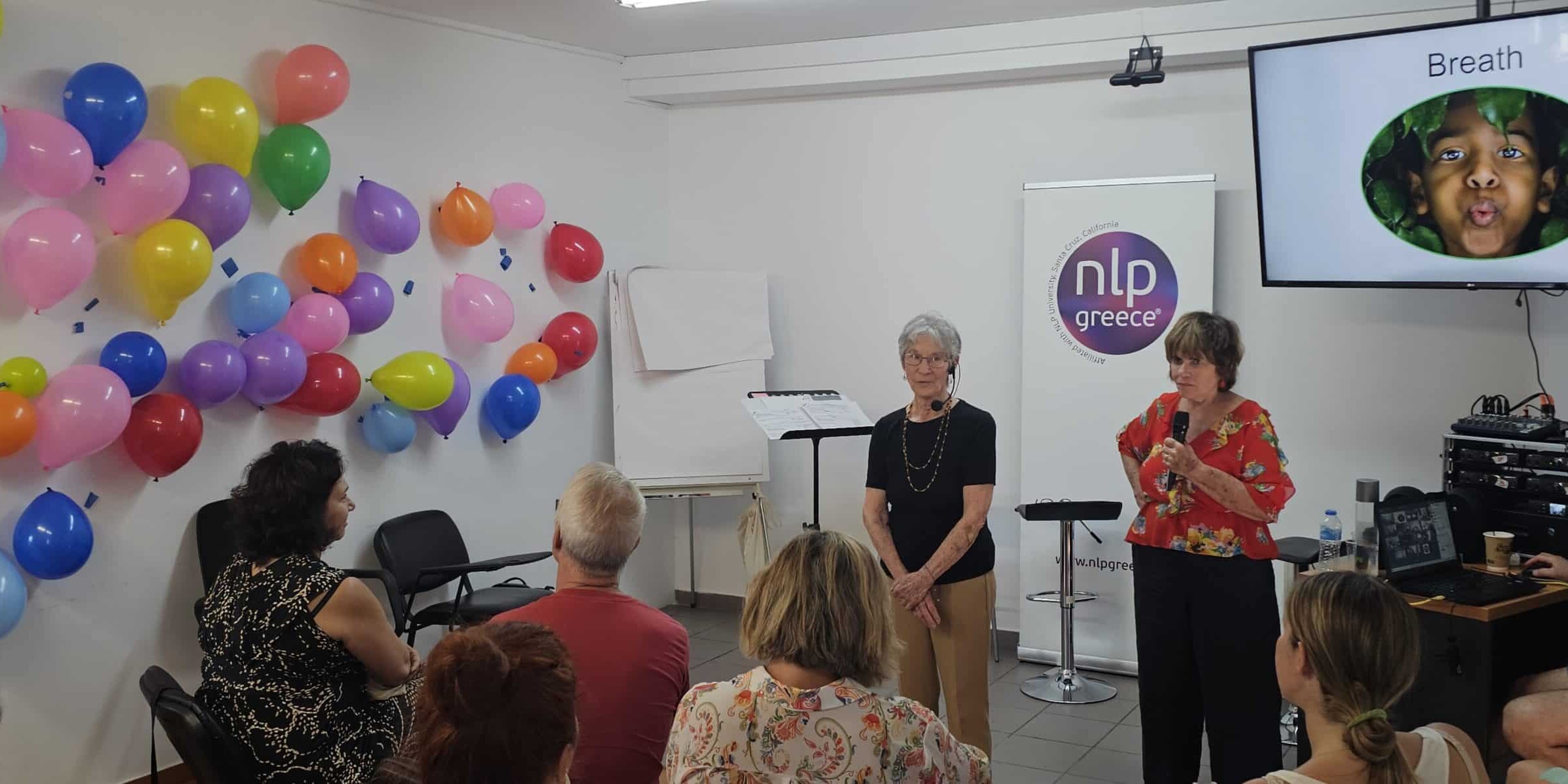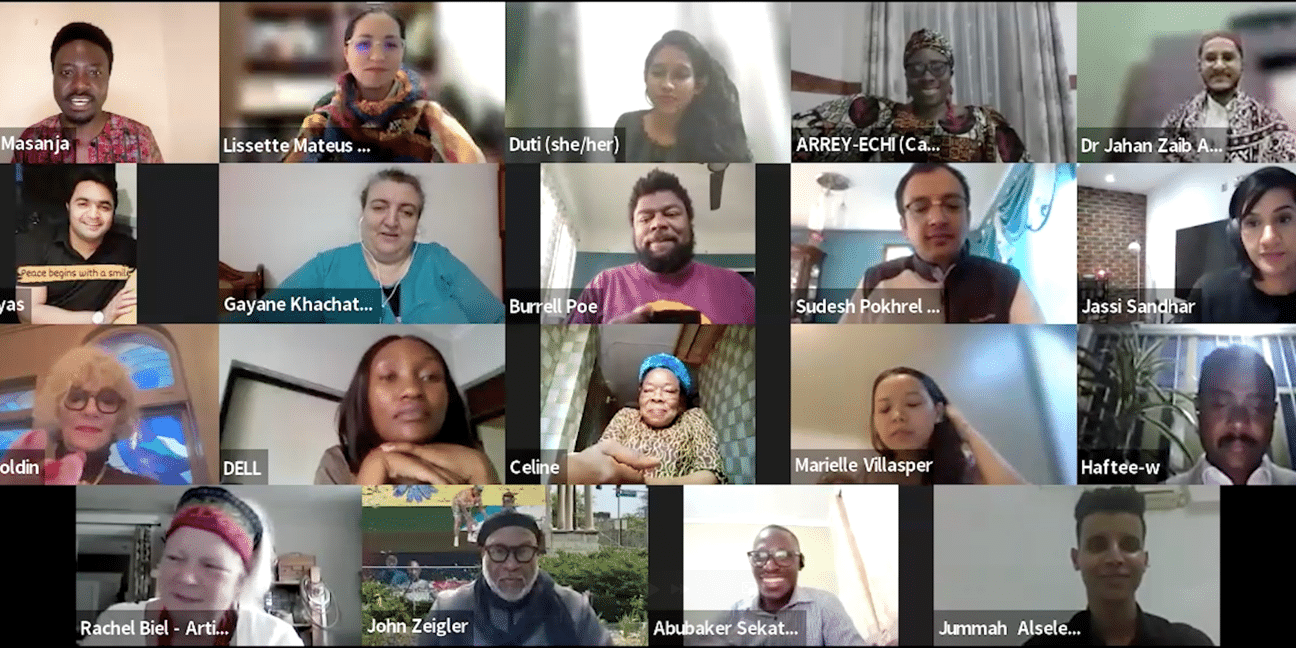By Lissette Mateus Roa, Co-Facilitator, Global Alumni Network
Colombia is the third most unequal country in the world, and the gap is growing. That is what is causing the latest mass protests in the country.
Colombians no longer care about FARC guerrillas, they no longer protest nor fear this group that signed a peace agreement with President Santos 3 years ago. Now, Colombians have turned their eyes to the real problems that afflict the nation; a health care system that does not work, little chance of education, inequality, impunity and especially corruption. Above all, it is the corruption of politicians that keeps the country in a precarious state because the money that should be available for the benefit of a country is stolen by a few and the government persists in benefiting those few.

President Iván Duque, who was the candidate of the former president and now-Senator Álvaro Uribe Vélez, has neglected the peace agreements, has not complied with them, and instead has allowed new illegal groups in the country to start arming again to fight for routes of drug trafficking and land. Because of that, there are newly displaced people and new massacres again. In addition, due to the tax reforms that Ivan Duque is presenting before the congress and a new law lead by the political party of former President Álvaro Uribe, he has shown that it is a government that aims to favor the richest, widening the gap of inequality in the country.
There are specific requirements that are being presented to the government and for which the huge protest marches began on November 21, 2019:
- Reduction of war budget, which is larger than the health budget even though the FARC no longer exists.
- More budget for higher education, because only 10% of young lower social class students enter the university and only 48% of those are from official schools.
- That the government complies with the peace agreements, and stops the killing of demobilized people. Already 130 have been killed in the last 2 years.
- That the government stop the genocide of indigenous people and systematic murder of social leaders in the country. 134 indigenous people and more than 400 social leaders have been killed during the government of Iván Duque.
- That the government stop widening inequality gaps. That it desist in the tax reform (called the package), which raises taxes for the middle classes and lowers the taxes of large companies. It could reduce the salary of young people under 25 years old to 75% of the current minimum, eliminate the pension funds, and left with precarious work to the independent ones that are around 40% of the country workers.
To understand this reform a little more, along with the new law, it is important to know that in Colombia, 1 hour of work is paid 1 dollar, and the minimum salary is 236 dollars per month, but a congressperson in Colombia is paid 9,531 dollars per month, this means 40 time more than a minimum salary. The law proposed by the government pretends to make a flexible minimum salary, and have young people working per hours, or part time, which is going to be cheaper for employers, but precarious for workers who would have monthly salaries of less than 236 dollars. The government said it is a way to have more jobs for unemployed people who currently are 10% of population. Apart from that, they said they will reduce from 48 to 45 hours a week of work, but this is going to leave workers without two days a year in payment, which they used to have for having time with their families and without 2 extra hours a week of recreation. Moreover, workers won’t have Sunday as their rest day, but it could be any day of the week, even if they would not have time with their families because their day of rest does not match with their families’. And they won’t have payment for holidays either.
On the top of that, with the tax reform, the government wants that independent workers, which in Colombia is half of the workforce (about 11,800,000 people), pay 19% in taxes over their salary, knowing that they already pay about 21% of their salary in VAT and payments of health and pensions. Meaning that if an independent worker has a monthly income of 3,000, they should pay about 40% of their salary in taxes, VAT, and parafiscal contributions. While this happened with independent workers, the big enterprises will have a reduction in their tax payments from 33% to 30%, which will amount to a little bit more than 2 and a half billion dollars, which is double the budget for the country’s university education, if we want to compare it. Another proposed law states that if companies hire young people less than 28 years old, they would have a 120% deduction on payments. In this sense, under this reform, along with the before mentioned proposed law, companies could hire people for less payment and less obligation, and they would have more deductions. What a great government for big companies!
Apart from that, the products already have a 19% VAT. For example, one gallon of petrol costs 2.60 dollars. All of this is going to widen the inequality gap and will make the rich richer, the middle classes unable to obtain more, and the poorest even poorer.
Despite all of the above, the government says it does not understand why citizens want to protest. For this reason, since the first march on the 21st, police and ESMAD (Mobile Riot Squadron) forces were deployed during the peaceful marches during the day. Because of that, citizens started a “Cacerolazo” from home, a form of protest in Latin America in which pots with spoons are beaten to make the government feel that the protestors are not vandals but an entire nation from their homes protesting peacefully. This sound was heard and spread throughout all neighborhoods and cities in Colombia.
To give you a sense of what these peacedful, if noisy, protests looked like, please watch this video taken at the street level and this video showing an overhead view.
On November 22 again there were marches and there were riots in different parts of the city (see video here). In the evening, President Ivan Duque decided to generate a general curfew in Bogotá and militarize the city. Somehow, a panic campaign was created – we still don’t known by whom it was orchestrated – through social networks, calls, and people entering residential complexes. It was said that they were going to destroy houses and that they were going to steal. It was a night of panic for the entire Bogota City. The next day, the mayor of the city said that all the alert calls were a lie and that it had been a dark campaign to generate chaos in the city.
After that night, many were afraid to go out and march. However, the marches continued on November 23, and in the afternoon hours, Dylan Cruz, 18 years old, was shot in the head by the ESMAD. Dylan was about to receive his high school grade on November 25, but instead, due to the impact, his body did not resist any more, and he died on his graduation day.
Despite all these marches and events going on, the president had said in his speeches he wanted to establish a dialogue. Last week, in the middle of the strike, the president passed the tax reform to the congress, and it was approved in the first plenary. The aforementioned law was also approved. In addition, the housing subsidy for the middle class was removed, and a law was passed to the congress so that the ESMAD could have more riot weapons. And the cherry on the cake was a law called Andrés Felipe Arias, named for a former minister of agriculture of prior President Álvaro Uribe, who was accused of giving land that should be for the poor to the rich, a scheme from which Alvaro Uribe Velez himself benefited. Andrés Felipe Arias was imprisoned in the United States and found guilty, as he was found guilty in Colombia. However, this law will allow him and many other corrupt individuals out of jails or house arrest and shorten their sentences.
Faced with this mockery and interweaving of laws and reforms to benefit a few, Colombians have not stopped marching.
Last Sunday, December 8, a march was called, that was supported by artists and was massive. The marches and protest will continue, but the government does not want to listen.
